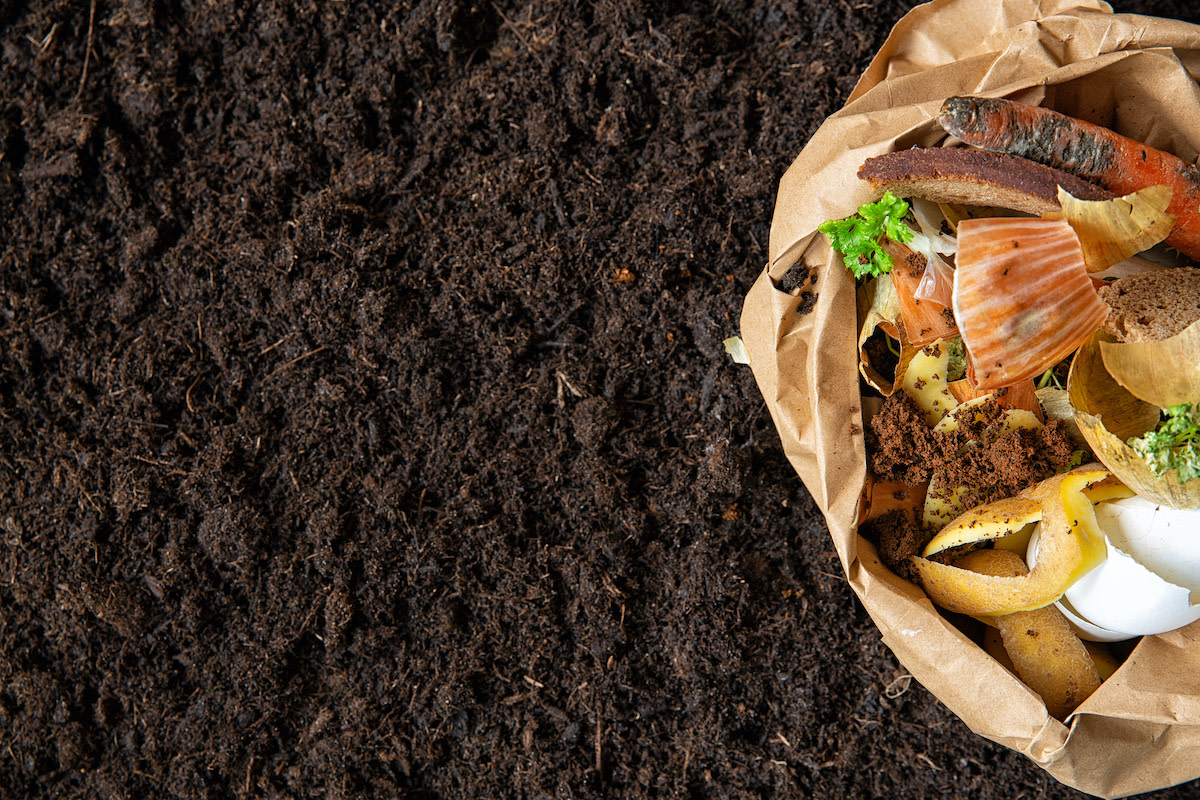How to Use Finished Compost: 4 Ways to Use Compost
Written by MasterClass
Last updated: Jun 7, 2021 • 3 min read
Composting is an effective and natural way to feed your soil and infuse it with nutrients. This natural recycling process reduces the amount of waste that winds up in landfills with the added bonus of keeping your garden healthy.
Learn From the Best
What Is Compost?
Compost is a blend of decomposing organic matter that contains many valuable nutrients for your soil. During the composting process, decaying organic materials are broken down by microbes, turning them into “black gold,” a crumbly garden superfood that can replenish the soil and create a healthier growing environment. There are two types of composting materials that create the ideal home for decomposing organisms: green and brown. Green materials are compostable resources that help the decomposing organisms in your compost thrive and multiply. These materials are high in nitrogen and found most often in food scraps like coffee grounds, eggshells, fruit cores, and vegetable peels. Brown materials feed the organisms and facilitate airflow. These materials are high in carbon and found in cardboard, wood chips, sawdust, newspaper, pine needles, and dry leaves.
4 Benefits of Composting
Composting offers a few benefits for both your garden beds and the planet, such as:
- 1. Waste reduction. Composting converts waste into a useful component of your garden, reducing the waste sent to landfills and decreasing the amount of new greenhouse gases released into the atmosphere. Kitchen scraps or other reusable resources turn to methane when left out to rot. With proper composting, you can aid the decomposition process and turn it into a climate-friendly material. Reusing organic materials through composting is a great way to reduce your carbon footprint.
- 2. Soil enrichment. Composting provides the proper nutrients to create rich soil without the reliance on chemical fertilizers. Compost materials can help loosen dense soil or clump loose soil together. Adding compost to your garden can help balance your soil’s pH, producing stronger and healthier plants. Learn how to test your soil pH using our complete guide.
- 3. Water retention. Compost helps raise your soil retain moisture by increasing porosity while decreasing runoff, allowing your plants to receive and retain water.
- 4. Attracts useful organisms. Like companion planting, compost piles can attract worms and beneficial insects to your crops or flower beds, aiding in their growth.
3 Types of Composting
There are a few different composting methods that any gardener can use:
- 1. Aerobic composting: Aerobic composting uses oxygen to help feed the microorganisms that break down the organic matter. Tumbler-style compost bins or open crates are often used to help aerate the material. This type of compost needs to be turned frequently (and moistened, depending on how much air gets through the pile).
- 2. Anaerobic composting: Anaerobic composting is the opposite of aerobic—it does not use air to promote the breakdown of materials. This type of composting relies on a sealed environment to close in the decomposing matter. Anaerobic composting usually occurs in landfills and produces a large amount of methane. However, home gardeners can utilize anaerobic composting in the form of the Bokashi method, which, when done correctly, can speed up the composting process.
- 3. Vermicomposting: Vermicompost relies on worms and bacteria to encourage decomposition. Earthworms, specifically red wigglers, reproduce quickly and can increase their numbers in a fairly short period, speeding up the composting process. Worms eat through the soil, creating more aeration before excreting nutrient-rich “castings” that can replenish the soil.
4 Ways to Use Compost in Your Garden
Here are four ways to use finished compost in your garden:
- 1. Use it as a mulch. Mulching with compost can help feed your garden soil while also keeping it from drying out. Apply a layer of compost to your soil surface to keep your soil moist and suppress harmful weed growth in your garden.
- 2. Turn it into compost tea. Compost tea is a natural liquid fertilizer made by soaking compost in water. By undergoing a day-long steeping process, solid compost adds soluble nutrients and beneficial microbes to the water. You can apply the tea to your plants and soil for an added boost of beneficial microbes and nutrients.
- 3. Create your own potting mix. You can create rich potting soil for your container gardens using one part compost, one part topsoil, and one part vermiculite (a porous mineral similar to perlite).
- 4. Use it to reduce runoff. Use compost as a top dressing for your raised beds to help reduce runoff. Compost creates a spongy, absorbent layer for your soil, which can trap water and moisture and protect your garden from soil erosion.
Learn More
Grow your own garden with Ron Finley, the self-described "Gangster Gardener." Get the MasterClass Annual Membership and learn how to cultivate fresh herbs and vegetables, keep your house plants alive, and use compost to make your community—and the world—a better place.
